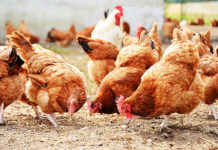As part of the Global Action for Fall Armyworm Control (GA), the United Nations’ Food and Agriculture Organization (FAO) has chosen Kenya as one of eight demonstration countries for implementing measures to protect crops and support farmers through Integrated Pest Management against the effects of Fall Armyworm (FAW) in the country and across Africa.
In this, Kenya will serve as a pilot country for fall armyworm research in the eastern Africa region.
According to Jingyuan Xia, Director of FAO’s Plant Production and Protection Division, the selection of Kenya is to help combat the effects of Fall Armyworm and reduce food insecurity in the region.
“Nairobi, chosen as a research hub due to its strategic location and abundance of expertise, will play a crucial role in leading this research initiative,” said Xia.
Threat of Fall Armyworm
Fall Armyworm, a ravenous transboundary pest originating in America, arrived in Africa in 2016 and has swiftly spread to 80 countries across Africa, Near East, Asia, and the Pacific Ocean Region. This pest primarily targets maize and other vital food crops like sorghum, millet, and sugarcane.
The invasion of Fall Armyworm in Uganda in 2016, followed by its spread to Kenya, Burundi, Ethiopia, and Rwanda, exacerbated the food security challenge, especially for farmers in countries recovering from a severe drought.
FAO reports an average annual loss of 36 percent in maize production due to this pest, affecting over 300 million Africans who rely on maize as a staple food.
“FAW was one of the main limiting factors towards global food security and ranked as one of the top ten devastating plant pests,” explained Xia.
He emphasized the urgency of implementing intervention measures to prevent the spread of this invasive insect that poses a significant threat to food security in vast regions.
Empowering Farmers
To combat Fall Armyworm, FAO is collaborating closely with farmers in pilot countries to develop effective strategies. These include community-based scouting and monitoring, bio-ecological control, and farmer schools aimed at enhancing their capacity to detect and control FAW infestations.
Carla Mucavi, FAO Kenya Representative, highlighted the significance of controlling Fall Armyworm despite the challenges posed by climate change.
She emphasized that it is possible to ensure food security by equipping farmers with the necessary tools and knowledge to minimize crop losses and improve returns on their investment.
Mucavi further mentioned the Global Action for Fall Armyworm Control, which supports farmers in achieving these goals.
Research and Innovation
To enhance farmer support, the Kenya Agricultural and Livestock Research Organization (KALRO) Embu Branch has dedicated a five-acre demonstration farm for trials to equip farmers with best practices in controlling and eradicating the Fall Armyworm, particularly in maize crops.
Dr. Alfred Micheni, KALRO Embu Branch Director, stated, “One of the problems we are addressing through research is to have technologies that reduce or eradicate FAW, especially in maize crops.”
In Kenya, farmers have adopted various control methods, including the use of organic solutions such as pepper, garlic, Mexican marigold, and pyrethrum. Xia acknowledged these organic methods, noting their effectiveness in countering Fall Armyworm infestations.
FAO’s global action plan for armyworm control aims to strengthen prevention and sustainable pest control capacities at the regional level. Xia emphasized the need for a coordinated approach at country, regional, and global levels to effectively combat this pest.
As part of the Integrated Pest Management approach, FAO is exploring the use of farmer field schools and research in Fall Armyworm control.
Xia highlighted the success of farmer field schools, stating, “Farmer field schools have proven an effective approach in reaching millions of smallholder farmers and improving their crop management and natural resource utilization.”








